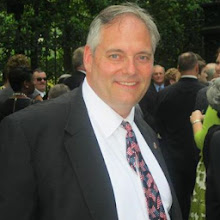(originally appeared in the Ellwood City Ledger, May 31, 2008)
This isn't about Barry Bonds, even though his name comes up.
I can’t get too worked up over Bonds, who is fated to be the poster child for his sport's Monsanto – "better baseball through chemistry" – era.
When he retires, Bonds will have more career home runs than anyone who has ever played Major League Baseball. But he won't own the record; he'll merely be renting it from New York Yankees’ star Alex Rodriguez.
And Bonds' statistics aren't baseball's only dubious marks these days – for one thing, it's not like Lou Gehrig had greenies to get him through the back ends of all those Sunday doubleheaders in the 1930s.
I'm not saying conclusively that Cal Ripken Jr. was gobbling fistfuls of Infielders' Little Helpers washed down with Mountain Dew when he broke Gehrig’s consecutive-games-played record, but there is reason to be suspicious.
Again, though, this isn't about Barry Bonds. It's about the San Francisco Giants' other Barry, pitcher Barry Zito.
In an “ESPN The Magazine” guest column last week, Zito leapt to Bonds’ defense – the pitcher said Bonds is a great guy, incidentally. But the first paragraph of the story, where Zito said Bonds gets paid to hit home runs, not to be a hero, says more about Zito than Bonds.
Apparently, Zito thinks he gets paid to take the ball from manager Bruce Bochy every fourth or fifth day and throw strikes. The difference between that line of reasoning and Heather Mills is that Heather Mills has a leg to stand on.
Bonds’ job is not, contrary to Zito’s opinion, to simply hit home runs. If athletic fame and fortune were merely a matter of proficiency, Sean Lugano would still be alive.
A gifted athlete, Lugano might have been a second baseman for the New York Mets, a placekicker for the Giants, a center for the Rangers or a guard for the Knicks.
But Lugano's sport was rugby, and he was good at it. An All-American at Loyola of Maryland in 1997, he led the New York Athletic Club's team to a second-place national finish months before his death.
The key distinction is that, when Bonds and Zito take the field, there are 30,000 people in the stands to see and millions watching on television, while Lugano’s ilk ply their craft before friends-and-family crowds.
If earning a six- seven- or eight-figure salary were simply a matter of hitting home runs – or throwing crisp passes and making tackles, for that matter – Lugano wouldn’t have been working at an investment firm in the World Trade Center on Sept. 11, 2001, the morning that terrorists flew a passenger jet through his office window.
The moral of this tale, Mr. Zito, is that you don't make the big bucks, wear big bling and live in a big house because you're good at what you do, but because the fans care about what you do. The minute they stop caring, your gravy train comes to a screeching halt.
In other words, athletes are supposed to be heroes.
Not the same way that the soldiers in Afghanistan and Iraq, or firemen and policemen, are heroes, but in the sense that professional athletes perform larger-than-life deeds and they have an obligation not to sully those accomplishments by being jerks, crooks, cheaters or malcontents.
Yes, Barry Zito, Bonds does get paid to do more than hit home runs.
And his job performance leaves plenty to be desired.
Eric Poole can be reached online at epoole@ellwoodcityledger.com
Thursday, January 21, 2010
Subscribe to:
Post Comments (Atom)

No comments:
Post a Comment